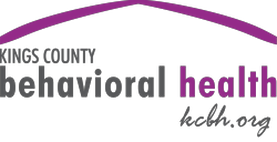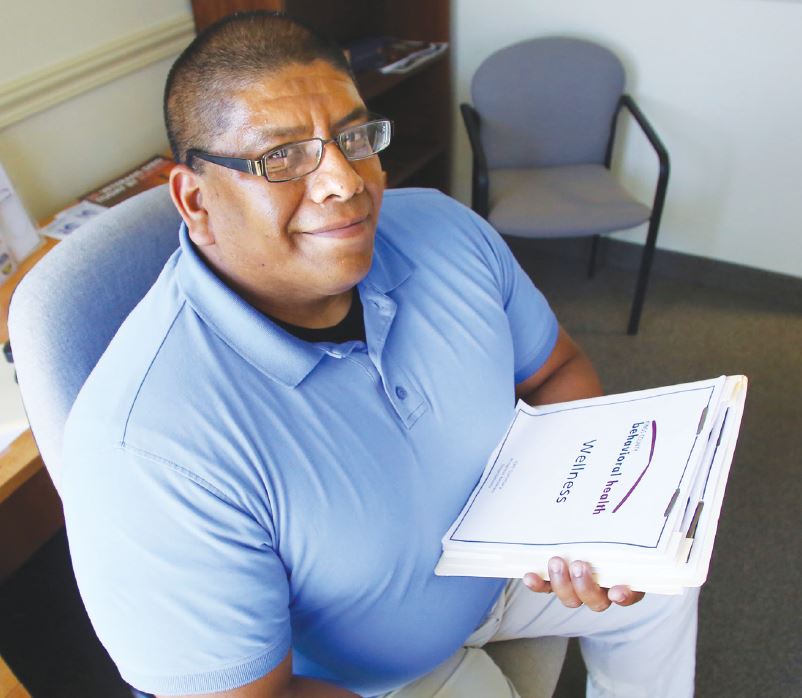Recovery Support Coordinator Juan Ramirez shares why Kings County's 'Whatever it takes' approach works.
What does “whatever it takes” mean?
We meet clients wherever they’re at, giving them dignity and respect, letting them know that it’s understandable that sometimes life may not go as planned. Hardships do come about. We are there to assist them to get to their goals by having that mutual relationship. It’s difficult to ask for help, so we want to make that very clear that we’re there and committed to [helping them] be able to obtain their goals.
What does that entail?
We want to equip them with skills that they can use once we’re gone. Whether it’s budgeting skills, self-advocacy, problem-solving, learning deep breathing techniques. Giving them any type of rehabilitation skill they need. That’s our goal. They may come to where they need some assistance towards obtaining a bus pass or a bike so they can go to an appointment. But we try to help them come up with some solutions, so they can find their own plan B before they need that bus pass.
We’re here to validate them, to encourage them, basically be partners with their recovery goals. Whatever goals they have, we are here to break them down into smaller achievable increments. We’re helping them problem-solve, so they can see they can do this on their own. We are committed to assisting them to meet their goals. We want them to feel that that [caseworker] genuinely cares about their situation. That relationship is important. We want to
build that trust.
Can you share a success story?
I have a gal who came from a different county who was homeless with her son. She was at a women’s shelter, not receiving any mental health services. She was having her case transferred from another county. So in the meantime, I was able to work with her by providing her with some coping skills, some budgeting skills, some daily-planning skills to assist her to minimize the intensity of the symptoms that she was experiencing.
Meanwhile, she was able to obtain therapy, counseling and medication. Our relationship was a very important stabilizer at that moment. She’s been homeless for about nine months, and next Monday, she’ll be able to obtain her housing.
Getting that extra push. Getting that motivation. Getting that advocacy. That’s what helped her obtain her apartment. It just completely changed her outcome. She’s headed back to college soon and will re-begin her life one step at a time, and we’ll be by her side to accompany her through that journey.
What is the most rewarding part of your job?
Building that relationship and getting [clients] to open up and be able to see how sincere and how invested we are in ensuring their safety. That makes a difference to us. They’re a member of our community. That’s someone’s wife, someone’s daughter, someone’s family member. They belong to someone, so it’s our duty to ensure their safety to do whatever it takes to make sure they get the help
that they need, and to let them know that they don’t have to do all the work themselves.
But clients do play a role, right?
They have ownership in their recovery, [and our part is] letting them know they can have a productive life by being able to show some measurable outcomes. It’s really clients advocating for themselves. We’re here and committed to anyone willing to help themselves.
We meet clients wherever they’re at, giving them dignity and respect, letting them know that it’s understandable that sometimes life may not go as planned. Hardships do come about. We are there to assist them to get to their goals by having that mutual relationship. It’s difficult to ask for help, so we want to make that very clear that we’re there and committed to [helping them] be able to obtain their goals.
What does that entail?
We want to equip them with skills that they can use once we’re gone. Whether it’s budgeting skills, self-advocacy, problem-solving, learning deep breathing techniques. Giving them any type of rehabilitation skill they need. That’s our goal. They may come to where they need some assistance towards obtaining a bus pass or a bike so they can go to an appointment. But we try to help them come up with some solutions, so they can find their own plan B before they need that bus pass.
We’re here to validate them, to encourage them, basically be partners with their recovery goals. Whatever goals they have, we are here to break them down into smaller achievable increments. We’re helping them problem-solve, so they can see they can do this on their own. We are committed to assisting them to meet their goals. We want them to feel that that [caseworker] genuinely cares about their situation. That relationship is important. We want to
build that trust.
Can you share a success story?
I have a gal who came from a different county who was homeless with her son. She was at a women’s shelter, not receiving any mental health services. She was having her case transferred from another county. So in the meantime, I was able to work with her by providing her with some coping skills, some budgeting skills, some daily-planning skills to assist her to minimize the intensity of the symptoms that she was experiencing.
Meanwhile, she was able to obtain therapy, counseling and medication. Our relationship was a very important stabilizer at that moment. She’s been homeless for about nine months, and next Monday, she’ll be able to obtain her housing.
Getting that extra push. Getting that motivation. Getting that advocacy. That’s what helped her obtain her apartment. It just completely changed her outcome. She’s headed back to college soon and will re-begin her life one step at a time, and we’ll be by her side to accompany her through that journey.
What is the most rewarding part of your job?
Building that relationship and getting [clients] to open up and be able to see how sincere and how invested we are in ensuring their safety. That makes a difference to us. They’re a member of our community. That’s someone’s wife, someone’s daughter, someone’s family member. They belong to someone, so it’s our duty to ensure their safety to do whatever it takes to make sure they get the help
that they need, and to let them know that they don’t have to do all the work themselves.
But clients do play a role, right?
They have ownership in their recovery, [and our part is] letting them know they can have a productive life by being able to show some measurable outcomes. It’s really clients advocating for themselves. We’re here and committed to anyone willing to help themselves.


 RSS Feed
RSS Feed